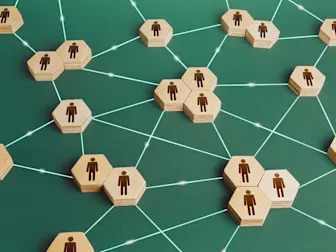The cracks in DAO governance are beginning to show. In the span of a few weeks, two high-profile players—Solana-based exchange Jupiter and NFT conglomerate Yuga Labs—abandoned their DAO structures, issuing blunt statements about dysfunction and disillusionment.
Jupiter cited a “breakdown in trust,”
while Yuga CEO Greg Solano
called Apecoin DAO
“sluggish, noisy and often unserious governance theater.”
While hundreds of DAOs still operate across crypto with thousands of participants, questions are being raised over whether DAOs, once the beating heart of crypto’s decentralization dream, can flourish in this cycle.
DAOs, decentralized autonomous organizations, are blockchain-native governance systems that allow token holders to vote on treasury allocation, protocol upgrades, and more. In the last decade of crypto experimentation, they were heralded as the future of community capitalism. Now, their limitations seem to be catching up with them.
“I absolutely understand the frustration with sluggish, broken governance," said Kollan House, founder of MetaDAO. “This is the problem with token voting.”
Originally celebrated as a way to “give a voice to the voiceless,” DAOs have often been criticized for being a legal and financial gray area. By issuing “governance tokens,” many projects found a way to circumvent securities laws, without delivering the accountability or utility those tokens promised.
Today, CoinMarketCap lists 273 DAO tokens with a combined market cap of over $21 billion. But those numbers are misleading. Nearly 50% of that value is concentrated in just three tokens—Uniswap (UNI), Aave (AAVE), and Bittensor (TAO). At the other end of the spectrum, 63 DAO tokens are worth less than $1 million, effectively dead-on-chain.
Take Mango Markets for example. It was once a bustling decentralized exchange that notched more than 1,000 governance proposals. It now has zero activity after the platform shut down in February, but $19 million worth of MNGO tokens still exist – completely useless.
DAOs were often criticized for “governance theater”—in other words, for appearing to be decentralized and governed by the crowd, but actually being controlled or dictated by a small number of people.
DAOs required large numbers of people to participate in order to be effective. But numbers were often lacking, leading to disillusionment. “To vote on anything, you need a quorum. But to reach quorum, you need incentives. And when you start incentivizing voting, you get mercenary participation. Everything works against itself from the start,” House said.
Joshua Tan is executive director of Metagov, a research group focused on self-governance.
“There are reasonable questions about the value DAOs are actually providing,” Tan, co-author of a recent report on DAO M&A, told CoinDesk. “Grant systems are often inefficient. Governance can be a mess. Still, this doesn’t mean DAOs are done. It just means they’re changing.”
In Tan’s view, the struggles of Jupiter and Yuga Labs are symptomatic of deeper systemic issues. But governance failures at particular projects shouldn’t be confused with a failure of the DAO concept itself.
Read more: Joshua Tan, Jillian Grennan and Bernard Schmid -
The State of DAO M&A
“If you compare billion-dollar DAOs to billion-dollar public companies, sure, DAOs look inefficient,” he said. “But so do most corporate boards. Governance is a cost center—not a profit center. That doesn’t mean it’s dispensable.”
Far from writing off the concept, Tan and House both see a bright future for DAOs—albeit one that looks radically different. House points to futarchy, a governance model where decisions are made based on prediction markets, as a promising evolution. MetaDAO is actively building a fundraising platform rooted in that vision.
“We’re solving issues with liquidity, decision making and ownership,” House said. “The goal is to build the organizations of the future from the start.”
Tan is focused on infrastructure—developing standards for DAO mergers and acquisitions (M&A), governance tooling, and valuation metrics through Metagov and DAOstar.
“We need to build muscles that TradFi has had for decades,” Tan said. “That includes M&A workflows, legal frameworks, and robust metrics—not just relying on TVL.”
The regulatory gray zone is another ongoing headwind. While some jurisdictions like Wyoming, Utah, and the Cayman Islands have built legal wrappers for DAOs, others lag behind. And even where structures exist, they're often expensive and impractical for small teams.
“We’re still seeing two to three DAO registrations per week in the Caymans,” Tan noted. “These are $50K setups. The fact that people are paying that much tells you DAOs still offer unique advantages.”
Both experts agree: a shakeout is inevitable.
“We’ll probably end up with 50 to 100 vibrant DAOs,” Tan said. “Just like after the ICO boom, most will disappear. And that’s fine.”
What remains will be leaner, better governed, and—hopefully—less performative.
Tan sees a future where DAOs don’t disappear, but merge into broader organizational strategies, particularly in the merging of TradFi and DeFi. DAOs could become tools in the corporate stack—used when necessary, ignored when not.
“The underlying tech, smart contracts, is here to stay,” he said. “Not everyone wants the ‘movement’ version of DAOs. But the infrastructure layer is decentralized. It’s modular. Companies will choose what fits.”
A good governance system is invisible when it works—and painfully obvious when it doesn’t. That truism now haunts the DAO ecosystem.
“The dream of community-led protocols isn't dead,” said House. “But we’re still discovering the right way to build it. And failure is part of that.”
“Governance can’t be optional. Without it, you get chaos. But that doesn’t mean the system we’ve built so far is the right one,” Tan said.
It remains to be seen whether more DAOs will follow Yuga and Jupiter in shutting down community governance, but one thing is clear. DAOs may be struggling, but they aren’t dead, for now.
Read more:
What Is a DAO?


